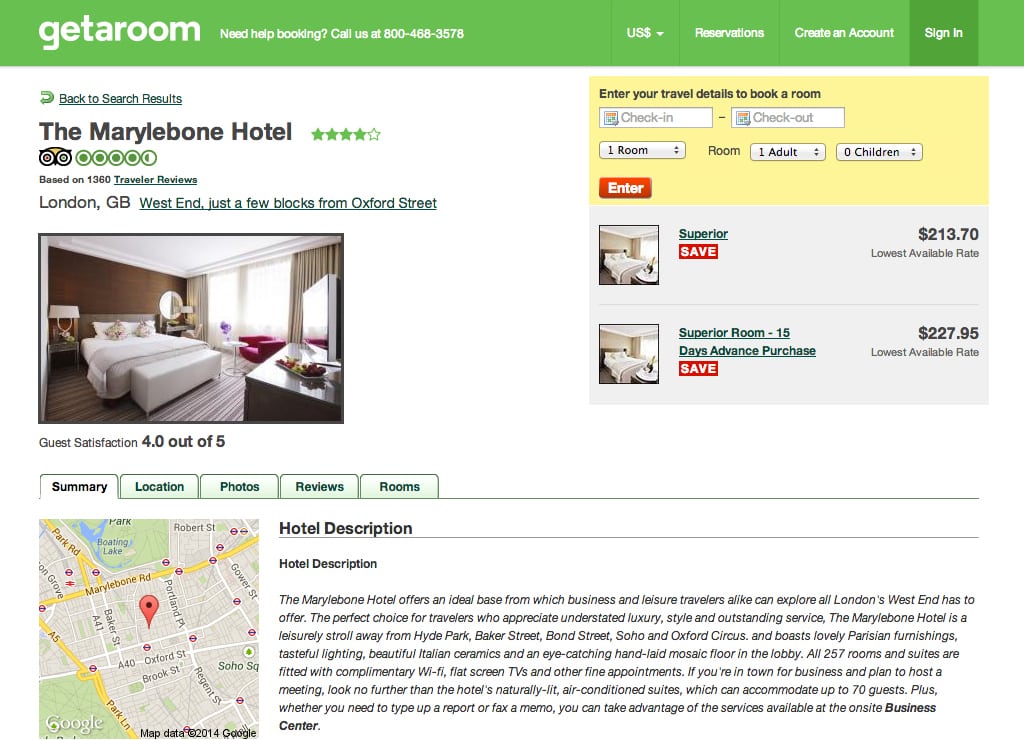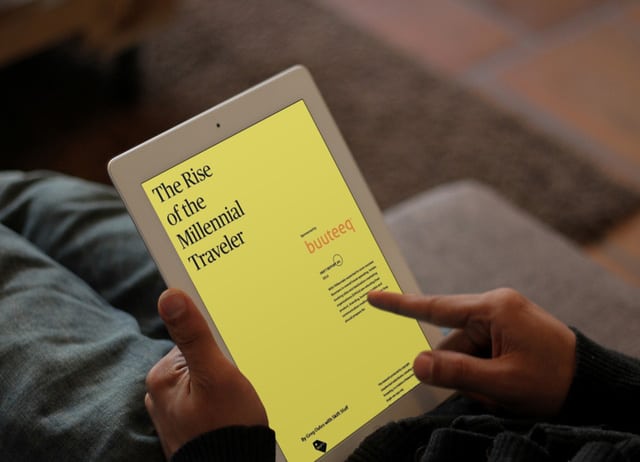Skift Take
While the hospitality industry is becoming more aware about the impact of user-generated peer reviews, Getaroom and ReviewPro explain why they're important and why they're exploding in popularity.
Skift’s trend report, “The Rise of the Millennial Traveler” launched earlier this month. It is based on interviews with hotels, tourism boards, booking sites and various professionals discussing Millennial travel behaviors. Below is an extract, get the full report here.
According to the hotel booking site Getaroom.com, and hospitality reputation management company ReviewPro, Millennials/Gen Y rely on user-generated peer reviews to help make their travel booking decisions much more than older generations.
They also explained the reasons and motivations behind that behavioral trend with Skift.
Since launching in 2009, Getaroom has amassed over 90,000 hotel listings, with about 60-65% of those located in North America. CEO/founder, Bob Diener, who also co-founded Hotels.com in the 1990s, says that Millennials/Gen Y are a big part of his target client mix.
“Millennials are a major demographic for us, it’s the fast growing percentage that we see,” says Diener. “That’s why we have a lot of unique, independent, boutique hotels that people have never heard of. And catering to this demographic is great because they’re more amenable to trying a new hotel. That just makes things a lot more fun, adventurous and interesting.”
That’s one of the reasons behind the explosive interest in peer-generated ratings and reviews. They’re a way to help mitigate the risk and alleviate the fear of booking those unknown independent hotels without a major brand attached to them.
Leveraging the demand, Getaroom has two rating systems for each hotel. There’s the standardized review process conducted by Getaroom based on a comprehensive set of criteria. That’s measured by a 1-5 star system beside the hotel name. Below that, TripAdvisor rankings are embedded into the hotel page with a link to reviews on TripAdvisor’s site.
“Hotels need to be much more sensitive to this [Gen Y] age group because they’re much more communicative,” says Diener. “We see a much higher percentage that are writing reviews and sharing on social marketing platforms. For a hotel that does things right, it’s great, for a hotel that doesn’t, it’s not good.”
The popularity of user-generated content and reviews is also exponentially growing because of the demand for tips about local, destination-specific travel experiences. Josiah Mackenzie, director of business development at ReviewPro, says that’s why more user-generated content was posted in 2013 than during the previous five years combined.
“What we’re trying to do at ReviewPro is take all of the consumer-created data and parse out what people are talking about, what they liked about a hotel and what they disliked,” Mackenzie explains. He says hotels are using the data more and more to drive their business development strategy.
Posted on the ReviewPro website, a survey by the market research firm Dimensional Research showed 90% of respondents said that positive online reviews influenced their buying decision. On the other hand, 86% said that negative reviews have a direct impact on shifting their purchase choices.
“Millennials are looking to hack travel and get something special, based on their perception about what everyone else doesn’t have,” says Mackenzie. “They want to feel like they’re insiders, and kind of in on this little secret about how to get a discount, or where to find this great little restaurant in some kind of hidden neighborhood. They’re always looking for some level of inside information. It speaks to the Millennial trend of wanting something special.”
This is an extract out of the Skift report “The Rise of the Millennial Traveler”, get the full report here.
Greg Oates covers hospitality and tourism trends. He’s toured over 1,000 hotels in 50+ countries.
Have a confidential tip for Skift? Get in touch
Tags: millennials, ugc

